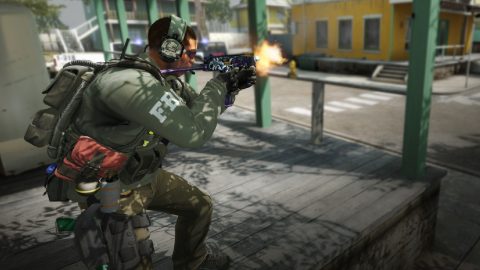NME Music News, Reviews, Videos, Galleries, Tickets and Blogs | NME.COM

Sally Potter is what you might call a do-it-all director. Throughout her 50-year career, the London filmmaker has written, produced, directed, shot, acted in and scored many of her own movies. She’s the ultimate auteur behind acclaimed indies like Brexit comedy The Party, the Tilda Swinton-starring Orlando and teen drama Ginger & Rosa.
Her latest project, The Roads Not Taken, is a sensitive think-piece based around the idea that there are alternative narratives of our lives, which continue to exist in the deeper reaches of our minds. Javier Bardem plays Leo, a man struggling with a neurological disease. He might not be able to communicate effectively with his daughter Molly (Elle Fanning), but the fantastical other timelines playing out in his head are a total joy to watch.
We caught up with Potter to find out where the unique idea for the film came from – and to chat about coronavirus, gender-neutral acting prizes and the future of cinema.
Hi Sally, it’s been tough year so far. Have you been coping alright?
“It’s been a writing time and a music-making time for me. I actually had the virus myself, and a close friend of mine died from it. I felt very close to the whole experience. Many people had it worse, of course. I had a so-called ‘mild’ version of it, so I escaped fairly lightly.”
When did you have the virus?
“I had it right at the beginning, around the time of lockdown. I’d been at the Berlin Film Festival with [my new film] The Roads Not Taken and then New York for the premiere which got aborted at the last minute. We did lots of interviews there and I was about to go to Mexico to open the film in Latin America when everything got cancelled. I came whizzing back [to the UK] and got symptoms.”
How would you describe the government’s response to COVID-19?
“Crap.”

Could you elaborate?
“Very slow-footed, not alert. I read some figures that said if lockdown had happened a week earlier, 20,000 lives could have been saved. It’s hypothetical but never the less, in New Zealand, Jacinda Ardern took immediate action and a great many lives were saved. It’s been a very uneven, confused and contradictory response from the UK government.”
Putting your new film The Roads Not Taken out in the middle of it can’t have been easy…
“I think one has to stay flexible at this point. I watch a lot of films at home, but I also go out to the cinema. It was fantastic to watch this film in a 2000-seater in Berlin on a huge screen – that’s what it was designed for, to feel epic. But at the same time, I think it’s perfectly valid to watch a film in a very intimate way at home. At the moment, we don’t have a choice.”
It’s about a daughter struggling to take care of her father who has a neurological illness – was it based on personal experience?
“I had a very close, female friend, who had multiple sclerosis over a 20-year period. I organised her care and eventually, I was the only one who could understand what she was saying. I witnessed really close up what that descent into an illness is like. And then my own younger brother was diagnosed with a form of early onset dementia. It moved very fast and he died after two years.”

Did you draw on that in the script?
“I witnessed this experience of people whose communication skills start to change. I thought that when they appear to be disappearing, maybe they’re going somewhere really interesting instead.”
And that’s what we see in Javier Bardem’s scenes – were you worried about a backlash against casting him in a differently-abled role?
“No, not in this instance. In this particular story, the character only has dementia in one storyline. In the other stories, (the other parallel selves) he does not. So it would be an absolute nonsense for somebody with dementia to be trying to play all of that. It would be torture actually. I feel totally supportive of actors with disabilities – it can be absolutely infuriating, just as some gay actors get totally pissed off when straight actors play a gay part. But we can’t be too over-literal about it – an actor’s job is to act, to be what they are not. If everybody only ever plays what they are, we come into a very, very limited definition of fiction.”
Berlin Film Festival recently announced gender-neutral acting prizes for 2021 – do you think that could work?
“I didn’t know about that, that’s news to me. In theory, it sounds like an interesting, good idea. In practice, it might count against some people who have fewer opportunities or are in a minority – women, people of colour, for example. On the other hand, I’m not sure about the idea that female actors are in some other category of acting to male actors. Of course they’re not, they’re just actors. I need to ponder on that one.”

Lots of your films have been smaller, indie productions – have you ever been offered a big studio movie?
“I haven’t really been offered blockbusters, but I’ve been offered studio films and I have turned them all down. I’m not sure my reputation is great from that point of view!”
Did anything you turned down become a hit?
“Yeah, but I’m not going to say what they were because I don’t think it’s fair on the people that then took it on. I have no regrets. There’s not time for that. Occasionally, I think it’d be nice to be offered something really massive and see what I could do with it. I don’t write action films, but some really great, wonderful political thriller – something you can really get your teeth into and deliver. I think that would be highly enjoyable.”
What about doing a gritty HBO miniseries then?
“I think it would be very attractive, but a lot of directors I’ve talked to who’ve worked in TV says it’s the showrunner’s game. If you come in as a director you often have very little control. The person who’s really important in those TV things is the person who came up with the concept – and then there’s a writers’ room. It’s so different to the way I’m used to working, which is solitary. I would only be interested if I could write and direct too.”
‘The Roads Not Taken’ is in UK cinemas now
The post Cult filmmaker Sally Potter: “The government’s response to COVID-19 has been crap” appeared first on NME Music News, Reviews, Videos, Galleries, Tickets and Blogs | NME.COM.






